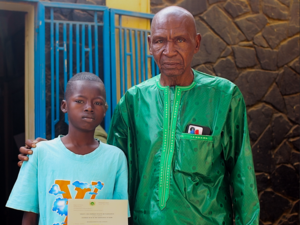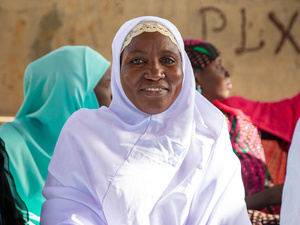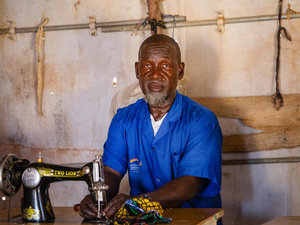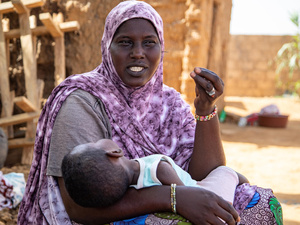Niger becomes first African country to adopt national law for protection and assistance of Internally Displaced People
Niger becomes first African country to adopt national law for protection and assistance of Internally Displaced People

Internally displaced people in Kabelawa IDP site in Niger.
NIAMEY, Niger - UNHCR, the UN Refugee Agency, and the UN Special Rapporteur on the human rights of internally displaced persons applaud the ground-breaking adoption by Niger of a national law for the protection and assistance of internally displaced persons (IDPs).
On Monday, the National Assembly unanimously voted for the adoption of a national law for the protection and assistance of IDPs in Niger, in line with the Kampala Convention which was adopted by the African Union in 2009, and ratified by Niger in 2012.
“Niger continues to inspire and show its solidarity and generosity towards those forced to flee, and it is now the first African country to incorporate the Kampala Convention into their domestic laws” said Alessandra Morelli. “A development all the more timely as next year will mark the tenth anniversary of the Kampala Convention” she added.
The law aims to promote and strengthen regional and national measures to prevent, mitigate and eliminate the conditions that could lead to internal displacement. It also includes the establishment of a framework relating to protection from displacement, as well as the protection and assistance of those internally displaced.
The text defines the roles and responsibilities regarding protection from internal displacement, and refers to durable solutions promoted by UNHCR, including voluntary return to their places of origin, local integration in the place of displacement or settlement elsewhere in the country.
There are currently over 170,000 internally displaced persons in Niger, mainly in the border regions of Diffa, Tillaberi and Tahoua. This number has significantly increased by up to 50,000 since the beginning of 2018, due to insecurity in the regions bordering Mali.
The adoption of this law is the result of months of collaborative work associating national institutions, the parliament, traditional and religious authorities, national and international organisations including UNHCR, with the support of the mandate of the UN Special Rapporteur on the human rights of IDPs.
The UN Special Rapporteur, during her mission to Niger in March 2018, commended the ongoing efforts of the government of Niger, and encouraged the adoption of a national law for the assistance and protection of IDPs. This recommendation was also included in her report presented to the UN Human Rights Council in June 2018.
While the government will be primarily responsible for the provision of emergency assistance and effective protection for IDPs, UNHCR and the humanitarian community will stand prepared to support government efforts to ensure access to adequate assistance and protection, and to pursue durable solutions.
For more information, please contact:
In Niamey: Louise Donovan; +227 92183473; [email protected]
In Geneva: Harriet Hirst; +41 229179172; [email protected]







